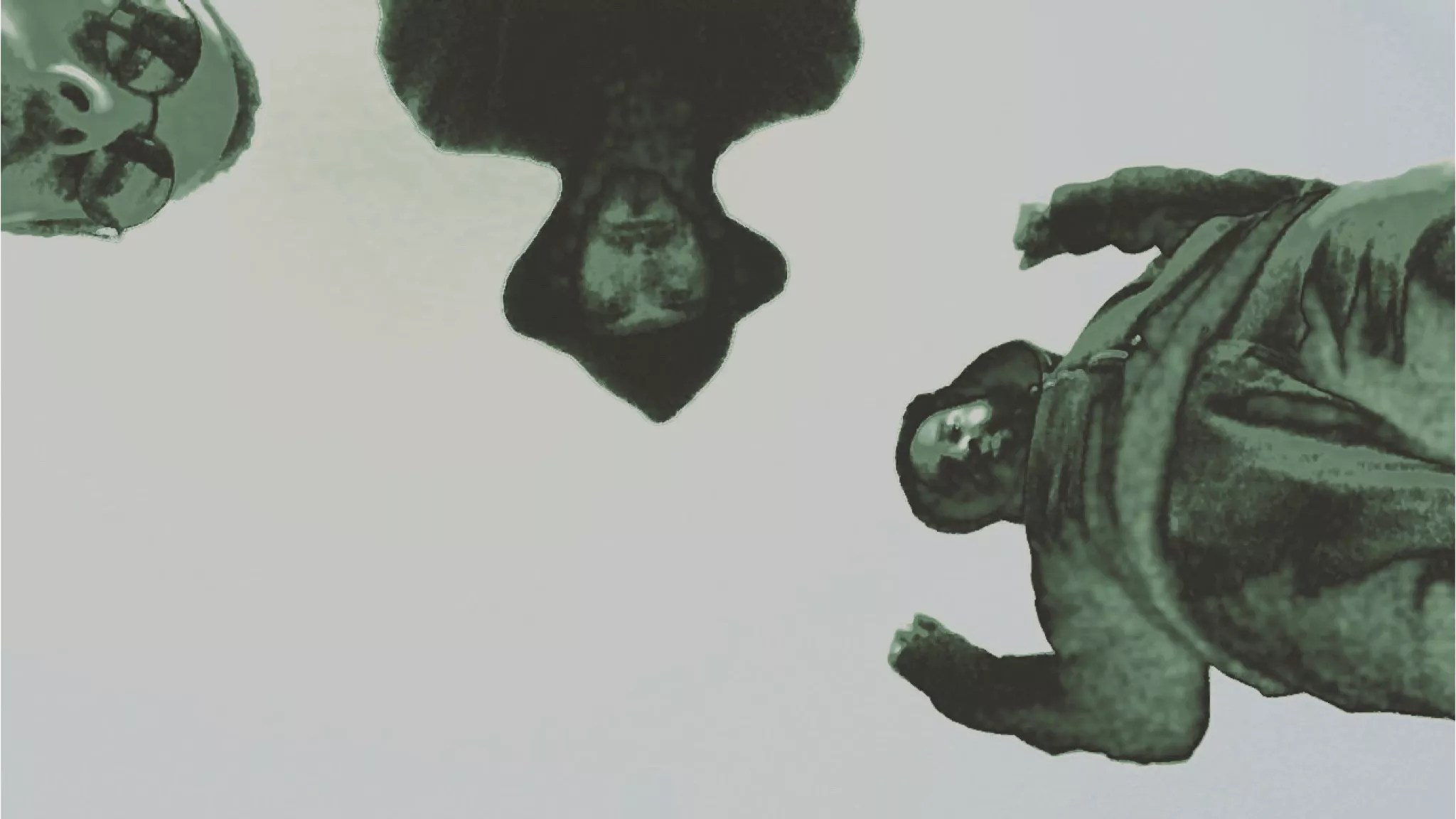
Death Grips photo

Audio By Carbonatix
You have to have been a certain type of person to have ever thought Death Grips was cool. Fans have a stereotype attached: nerdy; mostly, but not exclusively white and male; and addicted to interacting with music through arguments on websites like 4chan and Reddit.
Ten years ago, I was exactly this person, and I thought the trio of rapper Stefan Burnett (AKA MC Ride), drummer Zach Hill, and producer Andy Morin (AKA Flatlander) was the coolest band in the world (but not necessarily the best – that was Radiohead). One of the greatest moments of exhilaration in my life came when the band surprise-dropped its album Government Plates. The opening track, which has a very long title referencing a Bob Dylan lyric, was the most abrasive, extreme thing the group ever made, opening with a sample of shattering glass, a harsh, blaring, high-pitched frequency, and a guttural, screaming vocal from Ride sounding more unhinged than ever. My college radio buddies and I played it ten times in a row, and when I went home, I played it another 50 times, headbanging along to it in the darkened dorm I shared with some dickhead from Sigma Alpha Epsilon.
Whether or not Death Grips was cool is subjective, but it certainly didn’t sound like anything else happening at the time. Nobody could figure out how to classify the band’s music; “industrial hip-hop” was a common descriptor, but it didn’t quite do it justice. The band was truly the sum of its parts: Hill, a veteran of math-rock band Hella, brought hyper-fast, hyper-complicated drumming, and Morin supplied dark, futuristic production that sounded like a spaceship exploding.
Then there was Burnett, by all means, the heart and soul of the group, whose deep voice and distinctive look – heavily tattooed with a bushy beard – felt instantly iconic. His lyrics were a surreal, paranoid collage of bizarre imagery and exhilarating street-preacher invocation. In “Come Up and Get Me,” he portrays a madman about to fight his way out of a desperate situation: “Street or nosedive to the next life in seconds/And suicide ain’t my stallion/So I’m surrounded.” The opening track from Government Plates, “You Might Think He Loves You for Your Money but I Know What He Really Loves You for It’s Your Brand New Leopard Skin Pillbox Hat,” features a BDSM invocation that would make Anton LeVay blush: “I hover above you/Life pulled out your mouth, I become you/Opening of the mouth/Unlawful possession.”
The band’s influence is deeply felt, whether we care to admit it or not. Morin’s hard-hitting, abstract production informed Sophie (especially on tracks like “Ponyboy”) and the entire wave of hyperpop artists following her. Future left-field hip-hop acts Like Clipping and JPEGMafia would take cues from the band, as would the South Florida SoundCloud rap scene. When Yeezus came out in 2013, many assumed Kanye West’s punkish record was ripping off Death Grips’ sound. Even the band’s later, noise rock-leaning records share DNA with the electro-pop punk of 100 gecs and Machine Girl.
But more than the music, what crystallized the band’s appeal was its ethos and the way it manifested in its actions and public persona. The band members shun interviews and rarely interact with fans. Death Grips’ famously kinetic live shows are a continuous stream of music and typically only last an hour or so, or as long as Hill can keep drumming. The rock star shenanigans surrounding the 2012 album, No Love Deep Web, are the stuff of legend: The band canceled a tour to complete the album, and then, while living at the Chateau Marmont in Hollywood, they leaked the entire thing during a full moon. They also used a photo of Hill’s erect penis as the cover, which he later described as a symbol of “getting past homophobia.” Epic subsequently dropped the band, but it didn’t stop collaborations with the likes of Björk and Robert Pattinson (yes, the actor) on subsequent albums.
That same year, the band filmed an interview with Pitchfork (officially deleted by the publication, an anonymous YouTube account re-uploaded the video) before the label dropped them, which seems to be the only time the extremely private Burnett allowed himself to be filmed talking. “I don’t really look up to anybody,” he told the off-camera interviewer. “I don’t emulate anybody. I’m not that fascinated by human achievements. I find some things – of course, I like Jimi Hendrix, of course. There are others, but I’m not really into just naming them off; that seems boring. But I’m not that inspired by, at one point in my life, I was more inspired by people, but as I’ve grown more, humans aren’t my – I don’t really look to that for inspiration anymore. I look more inside myself and what goes on in there. Internal struggle, shit like that. I look inside more than outside. I’m not into, really, surface reality that much.”
It was shocking to hear an artist admit this. It was brave – the idea of rejecting any heroes, any influence but one’s inner voice, of forging a path and looking inwardly for creative answers to life’s questions, is one of the things that makes the band so singular, then and now. It’s rare to see artists so utterly devoid of concern for marketability and satisfying any audience save for their innate need to express what’s within.
In the band’s unique way, Death Grips keeps lit the last embers of a dying punk ethos of rejecting authority and doing it yourself, which never really had a place in the music industry. Whether or not the band was ever cool doesn’t matter – the trio never cared what you thought anyway.
Death Grips. 7 p.m. Friday, September 29, at Revolution Live, 100 SW Third Ave., Fort Lauderdale; 954-449-1025; jointherevolution.net. Sold out.